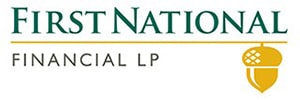
Refinance
Mortgage Refinancing in Ontario
Mortgage refinancing involves breaking a current mortgage and starting a new one, either with the same lender or a different one. One might refinance their mortgage to get a lower rate, access equity in their home, or consolidate their debts. However, breaking a mortgage early incurs a pre-payment penalty, so mortgage refinancing is risky. Therefore, before making any decision, it is important to research and calculates the cost and benefits of refinancing.
Why Should You Refinance?
One reason to refinance a mortgage is to obtain a lower interest rate. Refinancing to get a lower interest rate can save a lot of money over time, depending on the pre-payment penalty and the size of the outstanding mortgage. If the mortgage is a variable rate mortgage, a penalty of three months' interest is expected, and if it is a fixed rate mortgage, then the penalty will be the greater of three months' interest or the interest rate differential penalty (IRD). Even though there may be penalties, understanding the numbers helps in calculating whether a refinance will save money.
Another reason to refinance is to access the equity (cash) in a home. By refinancing a mortgage, one may be able to access up to 80% of the home's value, less any outstanding debt. The extra money can be used for investment opportunities, home renovations, or education. There are different ways to access this equity, including breaking the mortgage, taking on a home equity line of credit (HELOC), or blending and extending the mortgage with the current lender.
Debt Consolidation
Refinancing can also be used to consolidate debt. If there is enough equity in a home, built-up equity in a home can be used to pay off high-interest debt through a mortgage refinance. For example, if one has several outstanding debts, such as a car loan, a line of credit, or credit card bills, they may be able to consolidate this debt through the variety of mortgage refinance options available.
Pros and Cons of Mortgage Refinancing
Mortgage refinancing is a major financial decision that should not be made lightly. While it has the potential to save thousands of dollars over a mortgage term, there are inherent risks associated with refinancing that one needs to be aware of. The pros and cons of mortgage refinancing should be considered carefully. Pros of refinancing include the potential to get a lower interest rate, consolidate debt with a lower overall rate, access equity in the home, and swap to a variable or fixed rate. On the other hand, the cons of refinancing include higher penalties, consolidating debt removes an incentive to pay it down faster, accessing equity puts one into more debt, and switching the rate type is not always in the best interests.
Methods of Refinancing
There are several ways to refinance a mortgage, including breaking the mortgage contract early, taking out a HELOC, or blending and extending the mortgage with the current lender. Breaking the mortgage early can be considered to obtain a lower interest rate or access equity from a home. The existing mortgage is eliminated and replaced with a new one with any lender. However, breaking the mortgage incurs a pre-payment penalty from the bank, which is normally equal to around three months' worth of interest charges. Adding a HELOC gives access to the equity in a home, similar to a credit card account, but with much lower interest rates since it is a secured loan. Blending and extending the existing mortgage with a blended rate, which is a blend of the current mortgage rate plus any additional money borrowed at current market rates, is another option.
Cost of Mortgage Refinancing
The cost to refinance a mortgage depends on the strategy used to access equity or lower the interest rate. Regardless of the strategy, legal costs are incurred as a lawyer must change the financing on title. If the mortgage balance is greater than $200,000, many brokers and lenders will cover this cost. If the mortgage is broken early, the pre-payment penalty will also be a significant cost that needs to be considered when deciding whether to refinance. In addition to these costs, there may be other fees involved, such as an appraisal fee, title insurance, and mortgage discharge fees.
When considering whether to refinance a mortgage, it is important to consider the total cost of the new mortgage, including any fees and penalties. It is also important to calculate the potential savings from a lower interest rate or the benefits of accessing equity in the home. In some cases, refinancing may not be the best option, so it is always a good idea to speak with a financial advisor or mortgage broker to determine the best course of action.
In summary, mortgage refinancing can be a great way to save money, access equity in a home, or consolidate debt. However, it is important to carefully consider the potential costs and benefits of refinancing before making any decisions. With the right strategy and guidance, mortgage refinancing can be an effective way to achieve financial goals and improve one's overall financial health.
_ GET STARTED
Helping Canadian for a Better Living
_ OUR TRUSTED LENDERS AND PARTNERS
and many more
_ HOW WE WORK
We simplify the complex mortgage process by providing great rates and a better standard of living.
Looking for
Mortgage?
















